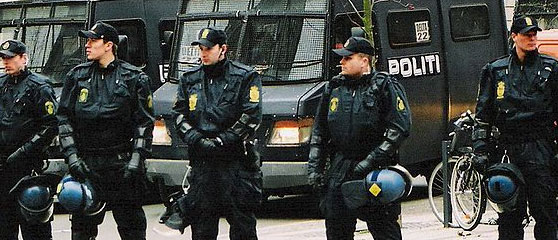Cannabis is illegal in Denmark, and a conviction for trafficking may result in a lengthy prison sentence, yet people have been openly flouting the law for decades in an 85-acre enclave in the east of Copenhagen: Christiania.
In 1971, Christiania was established on disused military barracks with the self-professed mission statement of being “a self-governing society […] self-sustaining […] and aspiring to avert psychological and physical destitution”. Among its various deviations from Danish law, the community chose to implement its own drug rules – essentially allowing for the sale, purchase, and consumption of all substances.
Availability of heroin and cocaine in Christiania’s unregulated market road – appropriately named Pusher Street – had deadly consequences. In a one-year period in the late 1970s, ten people died of drug overdoses; a significant number considering the commune’s population totalled only a few hundred at the time. Soon after this, Christiania banned all drugs except cannabis.
Today, Pusher Street continues to be Denmark’s only public cannabis marketplace, and, according to the RT news network, brings in 1 billion Danish kroner (£105million/$153 million) annually.
This defiance of Danish law has led to Christiania enduring a fraught relationship with the police. Residents describe that police rarely interfere with cannabis vendors, but large and violent crackdowns do occasionally occur. In April 2016, a video purported to show numerous police officers storming the commune, beating residents with batons, and pulling a disabled resident from his mobility vehicle. Following public criticism, the Copenhagen Police Commissioner, Steffen Steffensen, deflected blame: "it’s not our fault," he proclaimed, "we were put on this Earth to combat the cannabis trade in Christiania”.
It is not solely the police who bring conflict to Christiania, however. Numerous incidents of gang violence – thought to be associated with the cannabis trade – have occurred over the years. Former Christiania resident, Kjeld Pries, decried the "gang of thugs from Pusher Street [who] residents refuse to speak out against [due to] a fear of reprisal", and argued that legalisation and regulation of cannabis would reduce such criminality.
The unregulated nature of the cannabis production and supply chain does, of course, allow for proceeds to fund criminal enterprise. In keeping with the tradition of prohibition, rivals in the trade have no legal avenues to settle disputes; violence, though infrequent, is inevitable.
Support for reform has emerged from unlikely sources. Lars Andersen, a former Copenhagen police officer, refused to arrest cannabis users while employed by the city, stating “I cannot act against my own basic moral principles”. During an interview on Go’ morgen Danmark, he justified his stance on the grounds that “[drugs are] a healthcare problem, not a criminal problem”.
Legislative reform also enjoys considerable public support in Denmark; a 2012 Gallup survey found that around 53 per cent of Danes believe that cannabis should be legalised. This is, perhaps, unsurprising, as Denmark has the second highest lifetime prevalence of cannabis use in the European Union. The European Monitoring Centre for Drugs and Drug Addiction indicates that 35 per cent of people aged 15-64 have used cannabis at least once in their life, and around one in 200 people use it on a daily basis.
The legal regulation of cannabis is not unprecedented; the cultivation, sale, and purchase of the drug has been implemented in several US states and Uruguay, while Canada is due to become the first major Western country to introduce regulation next year.
Christiania’s own guidebook describes the commune as a “sanctuary [for] pensioners, immigrants, homeless, single mothers” and other marginalised or underprivileged groups. To secure Christiania as a place that endows aspiration and freedom to vulnerable people, it is essential for the chaos caused by criminality and law enforcement to be quelled; legal recognition and legal regulation of the cannabis market must occur. Counterintuitively, the fate of Christiania as a safe self-governing society may depend on legislative reform being enacted by the Danish government.


